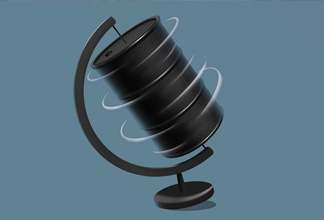Investing Truths: My 3 Phases of Investing
Written by Rita Silvan
Published on June 19, 2019
minute read
Share:
When I first started investing over 25 years ago, I was lucky because I didn't know what I didn't know. I was beginning my career, a single woman with no children to dress and feed, no mortgage or car payments, and no retirement plan. I felt I could take any financial risks I wanted. And I did.
One time, I read a short article in The Wall Street Journal about a company that made pheromone-based perfumes. I thought "Sounds good to me!" and bought the stock. I did that kind of thing a lot. I had no investment process, and that resulted in plenty of hits and misses amidst a jumble of holdings.
As I started to learn more about investing, it dawned on me that there was a lot I didn't know. This got me scared. What if I did something really dumb and lost everything? After all, I didn't have the training, experience, access to investment research and other tools that the professionals did. Who was I kidding, making investment decisions involving thousands of dollars — decisions that the pros wouldn't make without long hours of research and analysis? I replaced my carefree style with a very conservative approach — only blue-chip, dividend-paying, large-capitalization stocks. (Ironically, some of those were spectacular failures!)
About 10 years ago, following my "I-know-it-all" and "I-know-nothing" periods, I entered what could be called my "third-wave" investing phase. In this phase, I know what I know, and also what I don't know. (I stay out of investments in the "I-don't-know" camp, leaving those potential opportunities to others.) I'm no longer intimidated by skilled professionals because I've come to appreciate the unique advantages I have as a self-directed investor.
I'm the Boss of Me
I have only one client: me. And I'm pretty agreeable. I can choose to do my own thing and the timing is up to me. For example, during the global recession in 2008, I chose not to look at my portfolio balance for a long time — a luxury only a personal investor enjoys — to avoid having a strong emotional reaction that could have led to panic selling.
I Have Only One Time Horizon: My Retirement
Professional money managers have to report their quarterly and annual performance. I don't. Of course, I like to see the portfolio go up, but that doesn't always happen. During some years, the portfolio returns have been negative. Fortunately, the only target I have to meet is my long-term retirement goal. A quarterly or even annual drop doesn't matter as long as the longer-term trend is positive.
The Investing World is My Oyster
My asset allocation among stocks, bonds, cash and other investments is customized to my personal risk tolerance and preferences. My temperament and financial position allow me to invest heavily in common stocks. Yes, that comes with a degree of volatility but, at the moment, I'm fine with that. I also have a decent position in cash. Some investment managers view cash as "dead money," but I don't. It gives me security and options during down markets and personal emergencies. In the past few years, I've been adding to my emerging market holdings, especially stocks in India. I don't have to limit my investments there based on the recommendations of an investment committee.
Doing Okay is Okay with Me
It's fine with me if my total return is just okay — as long as I'm meeting my financial goals. Because my investment costs are so low, my hurdle rate is low, too. And I have no career risk if my returns lag the indices for a period of time, because I won't fire myself. (I couldn't afford the severance!)
RBC Direct Investing Inc. and Royal Bank of Canada are separate corporate entities which are affiliated. RBC Direct Investing Inc. is a wholly owned subsidiary of Royal Bank of Canada and is a Member of the Investment Industry Regulatory Organization of Canada and the Canadian Investor Protection Fund. Royal Bank of Canada and certain of its issuers are related to RBC Direct Investing Inc. RBC Direct Investing Inc. does not provide investment advice or recommendations regarding the purchase or sale of any securities. Investors are responsible for their own investment decisions. RBC Direct Investing is a business name used by RBC Direct Investing Inc. ® / ™ Trademark(s) of Royal Bank of Canada. RBC and Royal Bank are registered trademarks of Royal Bank of Canada. Used under licence. © Royal Bank of Canada 2019. All rights reserved.
The views and opinions expressed in this publication are those of the writer. This article is for your general interest and does not necessarily reflect the views and opinions of RBC Direct Investing. Furthermore, the products, services and securities referred to in this publication are only available in Canada and other jurisdictions where they may be legally offered for sale. If you are not currently resident of Canada, you should not access the information available on the RBC Direct Investing website.
Explore More

What Investors Can Learn from Hockey Star and RBC Olympian Sarah Nurse
Nurse's path to the podium reveals how preparation, planning and practice can turn potential into a golden opportunity
minute read

Crude Questions? A Look at Canada’s Oil Economy
What you need to know about Canada’s oil industry
minute read

How Inflation-Proof Are Your Investments?
Why inflation still matters – and how to stay ahead of it
minute read
Inspired Investor brings you personal stories, timely information and expert insights to empower your investment decisions. Visit About Us to find out more.







